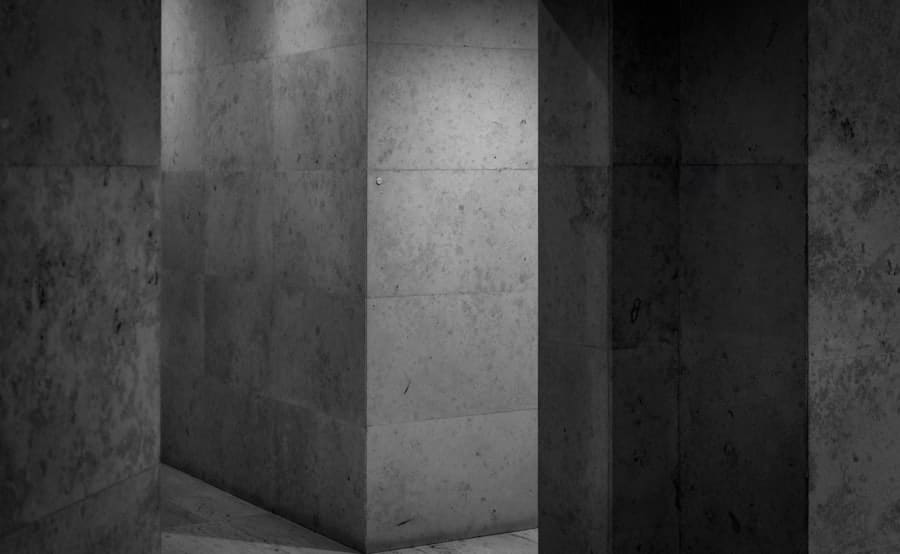As you step into the vibrant world of fashion, you may notice a subtle yet profound transformation taking place. Artificial Intelligence (AI) is no longer a distant concept confined to the realms of science fiction; it has become an integral part of the fashion industry. From the design process to retail experiences, AI is reshaping how you interact with fashion, making it more personalized, efficient, and innovative.
This technological revolution is not just about algorithms and data; it’s about enhancing creativity and redefining the way you perceive style. The integration of AI into fashion is a testament to the industry’s adaptability and forward-thinking nature. As you explore this dynamic landscape, you will find that AI is not merely a tool but a partner in creativity and decision-making.
It empowers designers to push boundaries, retailers to understand consumer behavior better, and shoppers to discover styles that resonate with their unique tastes. In this article, you will delve into the multifaceted role of AI in fashion, examining its impact on design, shopping experiences, supply chains, and ethical considerations.
Key Takeaways
- Artificial Intelligence (AI) is revolutionizing the fashion industry by enhancing design, personalizing shopping experiences, optimizing supply chains, and providing virtual styling assistance.
- AI plays a crucial role in design and creativity by analyzing trends, predicting consumer preferences, and generating innovative designs, leading to more efficient and sustainable fashion production.
- Personalized shopping experiences are made possible through AI-driven recommendation systems, virtual try-on technologies, and personalized styling advice, creating a more engaging and convenient shopping experience for consumers.
- Supply chain optimization with AI involves predictive analytics, demand forecasting, and inventory management, leading to reduced waste, improved efficiency, and better sustainability practices in the fashion industry.
- AI-powered virtual stylists and fashion assistants provide personalized styling advice, outfit recommendations, and fashion inspiration, enhancing the overall shopping experience for consumers.
The Role of Artificial Intelligence in Design and Creativity
When it comes to design, AI is revolutionizing the creative process in ways that were once unimaginable. Imagine being a designer who can harness the power of machine learning algorithms to analyze trends, colors, and patterns from vast datasets. This capability allows you to create collections that are not only aesthetically pleasing but also aligned with current market demands.
AI tools can generate design suggestions based on historical data and emerging trends, providing you with a wealth of inspiration at your fingertips. Moreover, AI can assist in the iterative design process by simulating how different fabrics and styles will look in real life. You can visualize your creations in 3D before they are even produced, saving time and resources.
This technology enables you to experiment with various elements without the constraints of traditional methods. As a result, the creative process becomes more fluid and dynamic, allowing you to focus on innovation rather than getting bogged down by logistical challenges.
Artificial Intelligence in Personalized Shopping Experiences

As a shopper, your experience is becoming increasingly tailored thanks to AI. Imagine walking into a store or browsing an online platform where every recommendation feels curated just for you. AI algorithms analyze your past purchases, browsing history, and even social media activity to suggest items that align with your personal style.
This level of personalization enhances your shopping experience, making it more enjoyable and efficient. Furthermore, AI-driven chatbots and virtual assistants are transforming customer service in fashion retail. When you have questions about sizing or need styling advice, these intelligent systems can provide instant responses, guiding you through your shopping journey.
This not only saves you time but also ensures that you receive personalized assistance whenever you need it. The result is a seamless shopping experience that feels intuitive and engaging, allowing you to discover new styles that resonate with your individuality.
Supply Chain Optimization with Artificial Intelligence
Behind the scenes of the fashion industry lies a complex supply chain that can often be inefficient and prone to delays. However, AI is stepping in to streamline these processes, ensuring that products reach you more quickly and efficiently. By analyzing data from various sources—such as inventory levels, shipping times, and consumer demand—AI can predict trends and optimize inventory management.
This means that brands can produce the right amount of stock at the right time, reducing waste and improving sustainability. Moreover, AI can enhance logistics by predicting potential disruptions in the supply chain. For instance, if there’s a forecasted delay due to weather conditions or transportation issues, AI systems can suggest alternative routes or methods for shipping.
This proactive approach minimizes delays and ensures that you receive your favorite items without unnecessary wait times. As a result, the entire supply chain becomes more agile and responsive to market demands.
AI-Powered Virtual Stylists and Fashion Assistants
Imagine having a personal stylist available at your fingertips 24/7. With AI-powered virtual stylists and fashion assistants, this dream is becoming a reality. These intelligent systems analyze your wardrobe, preferences, and even upcoming events to provide tailored outfit suggestions.
Whether you’re preparing for a casual outing or a formal event, these virtual assistants can curate looks that suit your style while considering current trends. Additionally, these AI tools can help you make informed purchasing decisions by suggesting complementary pieces or accessories that enhance your chosen outfit. You no longer have to rely solely on your instincts; instead, you can leverage technology to elevate your fashion game.
This personalized approach not only saves you time but also boosts your confidence as you step out in outfits that truly reflect who you are.
Ethical and Sustainability Considerations in AI-Driven Fashion

As the fashion industry embraces AI, it is essential to consider the ethical implications of this technology. While AI has the potential to enhance efficiency and creativity, it also raises questions about data privacy and job displacement. As a consumer, you may wonder how your data is being used and whether it is being handled responsibly.
Transparency in data collection practices is crucial for building trust between brands and consumers. Moreover, sustainability is a pressing concern in fashion today. The fast fashion model has led to significant environmental challenges, but AI offers solutions for more sustainable practices.
By optimizing production processes and reducing waste through predictive analytics, brands can minimize their environmental footprint. As a shopper who values sustainability, you can support brands that prioritize ethical practices while leveraging AI to create a more responsible fashion ecosystem.
The Future of Artificial Intelligence in the Fashion Industry
Looking ahead, the future of AI in fashion appears promising and full of potential. As technology continues to evolve, we can expect even more innovative applications that enhance both creativity and consumer experiences. Imagine augmented reality (AR) fitting rooms powered by AI that allow you to virtually try on clothes from the comfort of your home.
This technology could revolutionize online shopping by providing a more immersive experience. Additionally, as AI becomes more sophisticated, it may play a role in predicting future trends with greater accuracy. By analyzing social media sentiment and cultural shifts, AI could help brands stay ahead of the curve and create collections that resonate with consumers before they even realize they want them.
The possibilities are endless as AI continues to shape the fashion landscape.
Embracing the Silent Revolution
In conclusion, the integration of artificial intelligence into the fashion industry represents a silent revolution that is transforming how you experience style and shopping. From enhancing creativity in design to personalizing your shopping journey, AI is reshaping every facet of fashion. As you navigate this evolving landscape, it’s essential to embrace these changes while remaining mindful of ethical considerations and sustainability.
The future holds exciting possibilities as AI continues to advance, offering new ways for you to engage with fashion while promoting responsible practices within the industry. By understanding and adapting to these innovations, you can be part of a movement that not only celebrates creativity but also champions ethical consumption in an ever-changing world. Embrace this silent revolution; it’s not just about what you wear but how technology is redefining your relationship with fashion itself.
Artificial Intelligence is making waves in various industries, including the fashion industry. A related article on AI Lab 360 discusses the average salary of an AI engineer, shedding light on the lucrative opportunities in this field. As AI continues to revolutionize different sectors, such as autonomous vehicles and healthcare, it is crucial to understand who uses AI the most and the challenges and opportunities that come with it. The silent revolution of AI in the fashion industry is just one example of how this technology is reshaping the way we work and live. To learn more about the impact of AI in different industries, check out the article here.
FAQs
What is artificial intelligence (AI) in the context of the fashion industry?
Artificial intelligence in the fashion industry refers to the use of advanced technology, such as machine learning and data analysis, to improve various aspects of the fashion business, including design, production, marketing, and customer experience.
How is AI being used in the fashion industry?
AI is being used in the fashion industry in various ways, including trend forecasting, personalized recommendations, virtual fitting rooms, supply chain optimization, and sustainability initiatives. It is also being used in design processes, such as creating new patterns and styles.
What are the benefits of AI in the fashion industry?
The benefits of AI in the fashion industry include improved efficiency in production and supply chain management, enhanced customer experience through personalized recommendations and virtual try-ons, and the ability to predict and adapt to changing fashion trends.
Are there any concerns or challenges associated with AI in the fashion industry?
Some concerns and challenges associated with AI in the fashion industry include data privacy and security, potential job displacement due to automation, and the need for ethical and sustainable use of AI technology in the industry.
What are some examples of AI applications in the fashion industry?
Examples of AI applications in the fashion industry include chatbots for customer service, AI-powered trend analysis tools, virtual styling assistants, and automated inventory management systems. AI is also used in creating personalized marketing campaigns and optimizing pricing strategies.






